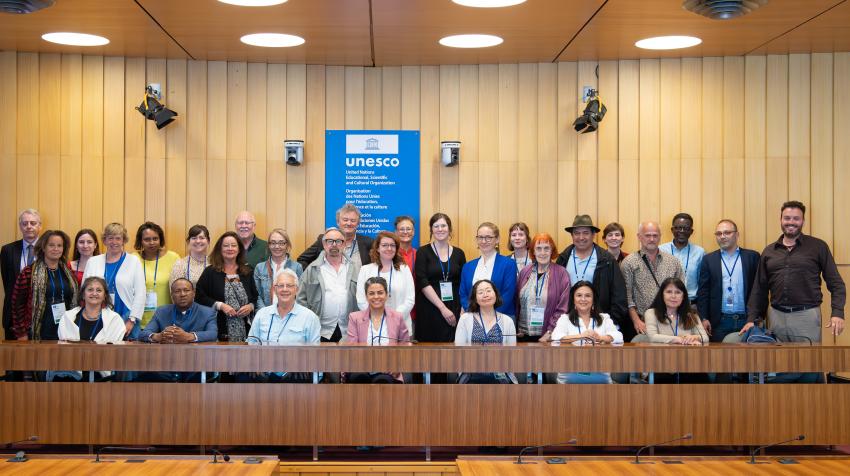September 2014, No. 2 Vol.LI, Illegal Wildlife Trade
Wildlife crime is a serious and growing international problem which transcends physical, political and ideological borders. The illegal exploitation of the world’s wild flora and fauna can affect a nation’s economy and security. A significant proportion of wildlife crime is carried out by organized criminal networks, which are drawn by the low risk and high profits. The same routes used to smuggle wildlife across countries and continents are often used by these criminal networks to smuggle weapons, drugs and people.
Effectively tackling the mounting challenges posed by wildlife crime requires a coordinated, transnational, multi-agency approach. As the world’s largest international police organization, INTERPOL is ideally and uniquely placed to lead the law enforcement aspect of this global struggle. To this end, INTERPOL, through its Environmental Security Sub-Directorate, forms the law enforcement component of the International Consortium on Combating Wildlife Crime (ICCWC).
With its network of 190 member countries, INTERPOL brings together global expertise on a range of transnational crime issues. Through INTERPOL involvement in ICCWC, the knowledge of this global network enhances the consortium’s activities to prevent and combat wildlife crime.
In addition to its secure global police communications system known as I-24/7 which connects police in all its 190 member countries and allows them to access the Organization’s criminal databases, INTERPOL global tools and services can be used for the specific needs of fighting wildlife crimes.
INTERPOL system of notices offers a series of colour-coded alerts that are distributed to law enforcement worldwide to share different types of crime-related information. Most frequently used for wildlife crime purposes are Red Notices (wanted persons alerts) and Purple Notices (information on modus operandi). The first INTERPOL notice issued for an environmental crime was a Purple Notice requested by Norway in 2013 to alert law enforcement worldwide to a vessel suspected of involvement in illegal fishing, while a Red Notice was issued at the request of Nepal for one of its nationals wanted for rhinoceros poaching and trading internationally in their horns.
The INTERPOL Environmental Security Sub-Directorate has also created a complementary system of alerts which member countries can use to share targeted information specifically related to environmental crimes.
When a country is faced with a crisis situation or requires support for an investigation, INTERPOL can send a team of experts to offer on-the-ground assistance. These have been deployed to assist with environmental cases, such as the INTERPOL Investigative Support Team sent to Sri Lanka in 2013 to take DNA samples from more than 350 elephant tusks seized by local authorities to determine their origin and potentially identify the criminal networks behind large-scale elephant poaching.
Under the umbrella of ICCWC, the European Commission has contributed nearly €2 million to INTERPOL over a three-year period. This funding will support INTERPOL Project Combat Wildlife Crime, an overarching initiative which supports the ICCWC partner organizations’ efforts to ensure long-term capacity-building, improve international information and intelligence exchange, and coordinate enforcement efforts in all areas of wildlife crime.
INTERPOL has a number of targeted initiatives to combat different forms of wildlife crime: Project Wisdom, which tackles elephant and rhinoceros poaching and the illegal trade in ivory and rhino horns; Project Predator, designed to preserve the world’s remaining wild tiger population; and Project Leaf, a consortium with the United Nations Environment Programme addressing illegal logging and forest crimes.
The principal objective of Project Wisdom is to help develop effective governance and rule of law and to improve the quality of the criminal justice response to the killing of elephants and rhinoceroses for ivory or horns. This is achieved by encouraging intelligence exchange, coordinating transnational operations, supporting cross-border investigations, organizing training courses, and developing a global picture of the criminal activity which hinders the conservation of elephant and rhinoceros populations. Elephant populations are in serious jeopardy due to the worldwide demand for ivory. In 1989, the Convention on International Trade in Endangered Species of Wild Fauna and Flora (CITES) prohibited international commercial trade in all elephant ivory; however, poaching continues at record levels.
Project Predator supports the 13 Asian countries with wild tiger populations in protecting this iconic species which is on the brink of extinction. The greatest threat comes from criminals who illegally kill or poach tigers due to the high value of their fur on the black market, and the demand for their body parts for traditional medicines. Project Predator supports and enhances the governance and law enforcement capacity for the conservation of tigers and other Asian big cats and will develop a global picture of the criminal activity undermining ongoing conservation efforts.
Equally important as the protection of the world ’s animals is the protection of its plant life. To this end, Project Leaf (Law Enforcement Assistance for Forests) offers a coordinated international response to combat the organized criminal groups involved in illegal logging and other forest crimes. In addition to the environmental damage caused by illegal logging, the trade in illegally harvested timber is highly lucrative and estimated at least at US $30 billion annually.
Effective compliance and enforcement in all these areas requires international and national cooperation among the many different law enforcement agencies involved, including police, forest and wildlife authorities, and customs. INTERPOL provides these environmental law enforcement agencies with access to its services by enhancing their links with the INTERPOL National Central Bureaus (NCBs) in each country.
Additionally, INTERPOL Environmental Compliance and Enforcement Committee, and particularly its Wildlife Crime Working Group, bring together executive leaders and decision makers from all member countries to provide strategic advice on relevant wildlife issues and directions, and help harness global support for wildlife conservation.
Educating the public—as well as businesses and lawmakers—on the dangers of environmental crime and its links to other serious criminal activities is one objective of the INTERPOL Turn Back Crime campaign. This programme highlights the dangers of organized and other forms of crime and their impact on everyday life, helps the public better understand these issues and empowers them to make more informed choices.
Preventing crimes which harm our natural resources is critical to protecting these species, but so too is reacting when these crimes occur to catch the perpetrators and ensure they face justice. INTERPOL therefore coordinates and supports regional and global operations designed to dismantle the criminal networks behind environmental crime, offering support to member countries during both the planning and operational phases.
Targeting the trafficking of elephant ivory in West and Central Africa, Operation Wendi in 2013 led to the seizure of nearly 4,000 ivory products and 50 elephant tusks, as well as 148 animal parts and derivatives and 88 firearms. In INTERPOL first international operation focused on large-scale illegal logging, Operation Lead resulted in 194 arrests and the seizure of US $8 million worth of timber and some 150 vehicles across Latin America. Operation Cage saw more than 8,700 birds and other animals—including reptiles, mammals and insects—seized and nearly 4,000 people arrested across 32 countries in 2012.
To assist law enforcement and environmental agencies in member countries in enhancing their ability to combat wildlife crime, INTERPOL has developed online training programmes and coordinates in-person training courses on issues including wildlife trafficking, forest crime and using intelligence in environmental investigations.
Best practice manuals and handbooks on intelligence-led enforcement, wildlife crime scene investigation, concealment methods used by wildlife smugglers, and conducting anti-poaching operations have also been published by INTERPOL as resources for the international law enforcement community.
As the world ’s largest international police organization, INTERPOL primary aim is to make the world safer for us all. The projects outlined above, amongst others, perfectly illustrate how successful international partnerships between INTERPOL, other international organizations and its member countries, can enhance environmental security. INTERPOL will continue to build upon and strengthen such partnerships.
The UN Chronicle is not an official record. It is privileged to host senior United Nations officials as well as distinguished contributors from outside the United Nations system whose views are not necessarily those of the United Nations. Similarly, the boundaries and names shown, and the designations used, in maps or articles do not necessarily imply endorsement or acceptance by the United Nations.




